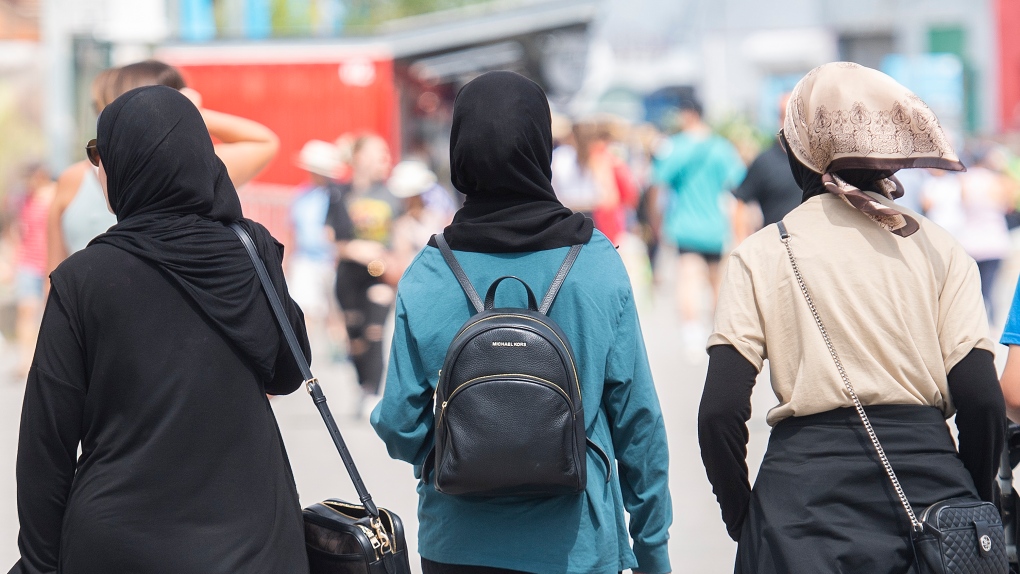A new report investigating discrimination towards Muslim women in health-care settings has revealed a lack of Canadian data on the topic.
The Muslim Advisory Council of Canada (MACC), along with researchers at McMaster University, released a study on Monday which looked at Islamophobia in health-care settings to try and paint a picture of where the health-care system is failing Muslim women as patients and as health-care professionals.
While the limited data which does exist showed clear areas where discrimination needs to be combatted, the main takeaway of the report was how scarce the data was.
"Given the growing population of Muslims in Canada, we want to also bring light to the inadequate amount of research on this topic,” Tabassum Wyne, Executive Director of the MACC, said in a press release.
"The limited Canadian research on this topic, along with the stories we hear from Canadian Muslim women, tell us that there are several counts of indirect discrimination when women seek medical attention – which is where we want to expand our focus.”
Islamophobia is an ongoing issue in Canada — the latest figures from Statistics Canada on police-reported hate crimes found that hate crimes targeting the Muslim community increased by 71 per cent from 2020 to 2021.
But how discrimination against the Muslim community affects their experiences in the health-care system has rarely been looked at.
When confronted with the lack of data tracking discrimination against Muslim women in Canada’s health-care system, researchers incorporated comparative data from similar countries.
They surveyed 14 studies in total published from 2004 to 2022, including eight from the U.S., and three studies each from Canada and the U.K.
The studies included more than 1,900 participants in total, with each study’s focus ranging from surveying patients about their experiences with palliative care or maternal care, to others that spoke to psychologists about Muslim womens’ experiences.
All of the studies included Muslim women among the participants, with seven studies focused only on Muslim women. Although the report was originally hoping to look at the health-care experiences of both Muslim women and children, researchers said they couldn’t find any studies that looked at the experiences of Muslim children in health-care settings.
Researchers looked at both overt discrimination, such as physical aggression, and more subtle forms of discrimination, such as patients reporting that they were treated dismissively or ignored.
“We found six studies in which patients felt that their race, gender, religion, or combination of those identities may have impacted the level of care they received,” the report stated.
“During doctor visits, some studies reported people feeling discriminated against as humans and treated poorly by staff. Lack of dignity, stereotypical comments, prejudiced attitudes, and aggressive behaviour were only some of the experiences of Muslim patients at different health-care settings.”
The studies showed a variety of health-care experiences, with the lack of data making it hard to pinpoint how prevalent discrimination is in Canada’s health-care system compared to others.
One study from Ontario that looked at patient experiences in perinatal care found that most women in the study were pleased with how health-care practitioners respected their beliefs and practices, such as supporting requests for modesty and the requirement of halal food. However, there were only 19 participants.
A U.S. study with 164 participants found that half of the group reported being excluded or ignored in health-care settings, while 44 per cent experienced problems in wearing Islamic clothing in a health-care setting.
Although Muslim people make up a much smaller percentage of the population in the U.S. — 1.1 per cent compared to 4.9 per cent of the Canadian population — there was far more research on the experience of Muslim Americans in health-care settings than Muslim Canadians.
The smallest Canadian study that was surveyed had only had six participants, with the largest being one with 450 participants, underlining a need for more Canadian data on this topic.
"To our knowledge, there have been no large-scale Canadian studies quantifying the extent of Islamophobia towards Muslims in Canada using representative samples and validated measures," Krishian Camargo, McMaster Research Shop Team Lead, said in the release.
"The Canadian health-care system is responsible for ensuring appropriate and effective care for all its citizens, yet evidence suggests not everyone is treated equally.”
A survey performed by the Angus Reid Institute earlier this month found that 50 per cent of Canadians say the country has a problem with Islamophobia, while the other 50 per cent say it does not. Those who were most likely to view Islam negatively were also the most likely to say that Canada did not have an Islamophobia problem.
Combatting Islamophobia is only possible with sufficient research to assess the issue, experts say.
“The first step is doing the research, and then we can work on outcomes,” Wyne said. “But let's follow suit with other countries and get the research done as a next step.”
A group of pediatricians who have formed an Anti-Racism Coalition at McMaster Children’s Hospital stated in response to this work that it was important to address “the growing needs of those facing racism and hate from Islamophobia through development of resources, standardized processes, and policies.”
MACC is hoping that with support from federal and provincial governments, they can conduct more health equity research to create a better picture of the experiences of visible minority and immigrant women in Canada, including children.











































